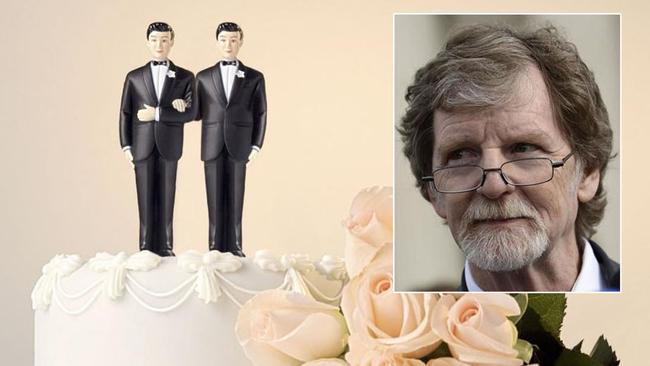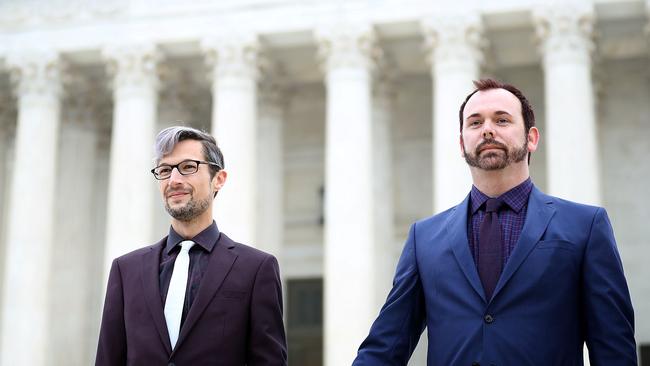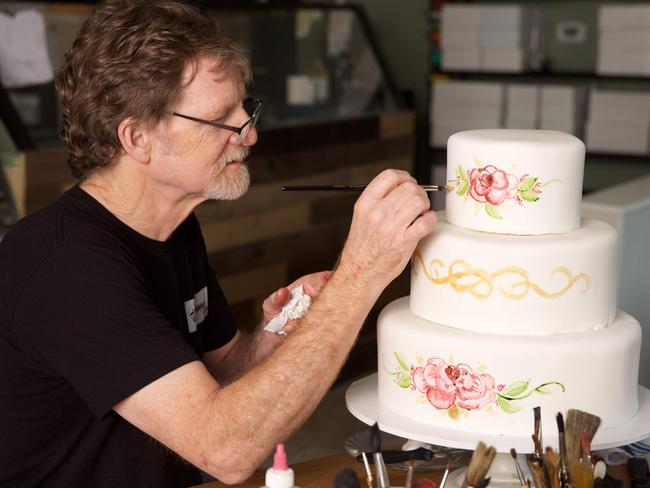US court rules baker has right not to bake cake for gay wedding
US Supreme Court rules in favour of a baker who refused to make a wedding cake for a gay couple in a much anticipated decision.

The US Supreme Court has ruled in favour of a baker who refused to bake a wedding cake for a gay couple in a much anticipated decision which upheld the need to respect religious tolerance over claims of discrimination.
But the Supreme Court in its 7-2 decision also took steps to try to ensure that the ruling did not open up the floodgates to broader discrimination against gay people in service industries.
The court stated that similar cases in the future must be resolved “with tolerance, without undue disrespect to sincere religious beliefs, and without subjecting gay persons to indignities when they seek goods and services in an open market.”
The case examined the competing constitutional rights of same-sex couple Charlie Craig and Dave Mullins and that of the religious baker Jack Phillips, pitting questions of religious freedoms against those of anti-discrimination.
The broad themes of the case mirrored the renewed debate in Australia over the protections for and the limits of religious freedom in the wake of the same sex marriage vote.
Mr Craig and Mr Mullins filed a civil-rights complaint against Mr Phillips after the baker declined to bake a wedding cake for them in his Denver bakery in 2012 saying it was against his religious beliefs.

The Colorado Civil Rights Commission and ruled against Phillips, saying he had broken the state’s anti-discrimination laws.
But is his majority decision, Justice Anthony Kennedy said the commission displayed an inappropriate “hostility” towards Mr Phillip’s religious convictions because it was biased against his religious beliefs.
“The commission’s hostility was inconsistent with the First Amendment’s guarantee that our laws be applied in a manner that is neutral toward religion,” Justice Kennedy said.
But he cautioned that the court’s decision might not prove to be a precedent in all cases where the rights of same-sex couples are challenged on the grounds of religious freedom.
“The court’s precedents make clear that the baker, in his capacity as the owner of a business serving the public, might have his right to the free exercise of religion limited by generally applicable laws,” Justice Kennedy wrote. “Still, the delicate question of when the free exercise of his religion must yield to an otherwise valid exercise of state power needed to be determined in an adjudication in which religious hostility on the part of the State itself would not be a factor in the balance the State sought to reach. That requirement, however, was not met here.”

The finding was welcomed by conservatives as a victory for religious freedom.
“We thank God for an answered prayer,” said Christian evangelist Franklin Graham. “This is a huge win for religious freedom.”
The ruling is also a win for the Trump administration which had argued in favour of Mr Phillips.
“The First Amendment prohibits governments from discriminating against citizens on the basis of religious beliefs,” Attorney-General Jeff Sessions said. “The Supreme Court rightly concluded that the Colorado Civil Rights Commission failed to show tolerance and respect for Mr. Phillips’ religious beliefs.”
But Sarah Kate Ellis, CEO of the Gay and Lesbian Alliance Against Defamation (GLAAD) said the decision would invite discrimination against gay people.
“While this decision does not change existing civil rights protections, it leaves the door wide open for religious exemptions to be used against LGBTQ people,” she said. “Today’s decision emboldens the anti-LGBTQ Alliance Defending Freedom and the Trump administration in their persistent push to legalise discrimination against LGBT people under the misnomer of religious freedom.’
Cameron Stewart is also US Contributor for Sky News Australia



